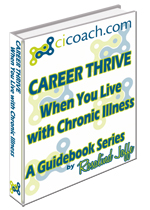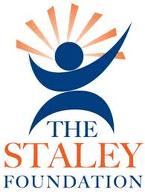


 When four self-described health activists share their personal stories in the same physical (not virtual) room at the same time, in real time, it’s an exponentially moving and learning moment. WEGO Health convened a Socialpalooza event (#socialpalooza on Twitter) this week where an influential handful of health activists met face to face with some people who work in health industries. The result was a fruitful dialogue where both empowered patients and the suppliers who research, develop and market products serving those patients, learned a lot from each other.
When four self-described health activists share their personal stories in the same physical (not virtual) room at the same time, in real time, it’s an exponentially moving and learning moment. WEGO Health convened a Socialpalooza event (#socialpalooza on Twitter) this week where an influential handful of health activists met face to face with some people who work in health industries. The result was a fruitful dialogue where both empowered patients and the suppliers who research, develop and market products serving those patients, learned a lot from each other.
These Four Musketeers of health activism included Alicia Staley (@stales on Twitter), who passionately shares her hard-won experiences in beating cancer more than once as the 19-year Awesome Cancer Survivor; Rosalind Joffe (@workwithillness), who coaches people with chronic conditions on how to work and live with challenging chronic health conditions; Kerri Sparling (@sixuntilme) of Six Until Me and Life, Uninterrupted for J&J’s Animas brand, who blogs and vlogs about diabetes, especially recently becoming a new mom; and, Karen Graffeo of Bittersweet Diabetes, who talks about her balanced life of wifehood, daughter-hood, knitter, and everyday life on her blog.
We all shared and learned a lot from each other and the candid discussion, which elicited laughter as well as several verklempt moments. There are playground rules that are crucial for the health industry to mind when engaging with health activists, and with less-engaged health citizens. Transparency and full disclosure are Job #1: without these, there can be no trust and therefore no engagement. To that point, “faking” patients is a no-no; Sparling warns, “we will find you,” meaning that the wisdom of the crowd in health-active communities can spot a phony, unauthentic voice. “You can’t fake a profile,” she cautions. There may be exceptions to this rule — such as Novartis’s Becoming Christopher project for the maturing cystic fibrosis community — but in these cases disclosure and background are important to provide in very clear, up-front ways.
An important finding which only a dialogue such as this could reveal is that patients — even the most sophisticated, activated ones such as these four — don’t understand the legal and regulatory rules for pharma and device companies with respect to social media. Thus, “Educate the public,” Alicia Staley recommended. The average consumer does not understand these reg’s, but she points out, “You get spoofed on Saturday Night Live.” Here is a ripe educational opportunity for the industry.
Joffe asked the elephant-in-the-room question: “Why do you even want to engage?” Silence, first, for a few minutes, was followed by a constructive discussion. Ultimately, one industry person said, “Conversations [among consumers about products] are happening before you get approval.” Furthermore, medical companies want to promote patient safety as well as respond (as much as legally possible) to mis-information about products .
Health Populi’s Hot Points: Jack Barrette, founder of WEGO Health, referred to a meme that speaks to the over-arching lesson learned by the group: that when we think about the role of social media in health, “It’s not the media. It’s the social.” As Sparling succinctly put it, “People want transparency. People want people.”
What health activists bring to the dialogue with industry is passion, reality-checks, ideation for new products and services in the Blue Ocean, and deep insights into what patients want. There is, no doubt, cynicism among many patients when it comes to health companies: they’re looking for these organizations to show the communities they care beyond just profits. Graffeo earnestly explained to the group that some diabetics believe there won’t be a cure for the disease “because we’re too profitable.”
Fostering the kind of dialogue WEGO Health convened, where industry can learn what people really want, need, and care about, can help re-build trust and cross that cynical chasm. These conversations yield learnings: it’s collaborative design and collaborative consumption. While there will be profits generated through designing and building very useful things (whether pills, devices, services, and tools), health communities will value — and value is the operative word — these products and services that can help them live their lives better. Health engagement is the new currency for success in the ecosystem of participatory health.





 Grateful to Gregg Malkary for inviting me to join his podcast
Grateful to Gregg Malkary for inviting me to join his podcast  This conversation with Lynn Hanessian, chief strategist at Edelman, rings truer in today's context than on the day we recorded it. We're
This conversation with Lynn Hanessian, chief strategist at Edelman, rings truer in today's context than on the day we recorded it. We're